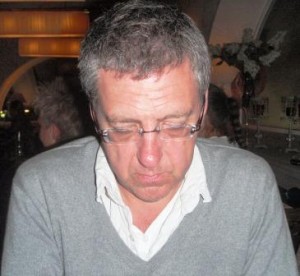
In his day job, George McKay is Professor of Media Studies at the University of East Anglia in Norwich. Prior to this, he was Professor of Cultural Studies at the University of Salford (2005-2014); previously he held a similar chair at the University of Central Lancashire (1992-2005, prof from 2000). Neither of those universities ever threatened him with redundancy; only UEA has done that, in 2023.
His research and teaching interests are in alternative culture and media, the cultural politics of popular music—including jazz, punk—disability, festivals, and gardening. He has written or edited numerous books and collections in these fields—lots of information and links about which are available elsewhere on this site.
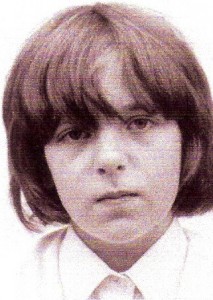
He has written for both academic and non-specialist audiences. So he has produced research monographs, aimed primarily at a university readership, and also written books for the informed, more general, reader, in particular for those interested or engaged in social activism, music-making, community and cultural action. (You can read an academic analysis of the pitfalls of writing about activist culture in Keith Halfacree’s ‘I could only do wrong’, which discusses George’s position in his early writing, and its reception by some of the radical groups involved and under discussion.)
He appears intermittently in the media as an ‘expert’ talking about his work, and related areas such as protest, counterculture, social movements—see Media and Contact pages for further information.
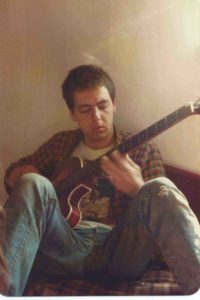
George is also a musician, semi-pro. He plays double bass, mostly jazz and improvised music, but also since moving back to Norwich he’s in a folk band. He first got a guitar and then a bass guitar about … 50 years ago, and a double bass 40 years ago. In Norwich in the mid-1980s he was part of the very first cohort of people working for Community Music East. Read about his musical adventures, bands, gigs and recordings here.
One of four children, George was born in the historic area of the Cowcaddens, Glasgow, in the 1960s, in a tenement apartment above the Park Bar on Maitland Street. (Read more in this 1967 Daily Record press cutting.) With his older sister he attended Milton Street and Oakbank Primary Schools. This entire part of the inner city was demolished within a few years, along with many neighbouring streets where his extended family lived, and had lived for generations, to make way for the M8 urban motorway.
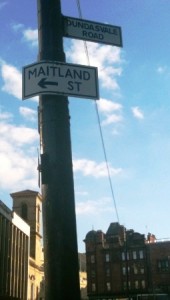 Slum clearance or class cleansing? They were all moved to council houses and flats, mostly out in one of the city’s new peripheral public housing schemes, Easterhouse, though George’s family were moved to one of the new council tower blocks in Woodside (Cedar Court). When he began writing about the radical environmental movement of anti-motorway protest in the early 1990s he slowly came to understand the power of the political unconscious.
Slum clearance or class cleansing? They were all moved to council houses and flats, mostly out in one of the city’s new peripheral public housing schemes, Easterhouse, though George’s family were moved to one of the new council tower blocks in Woodside (Cedar Court). When he began writing about the radical environmental movement of anti-motorway protest in the early 1990s he slowly came to understand the power of the political unconscious.
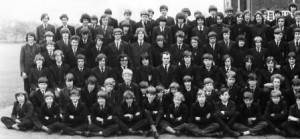
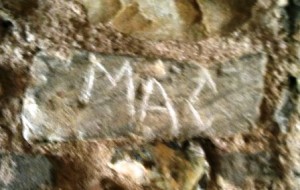 Joining the Scottish diaspora in the late 1960s, his family ended up in Norfolk, England, living first in a caravan in Great Yarmouth on the east coast, and then different houses in and around Burnham Market, north Norfolk. He went to primary schools in Yarmouth and Burnham, then to secondary schools in King’s Lynn (King Edward VII grammar) and Norwich (Blyth-Jex comprehensive), where his family settled. He himself returned to Norwich in 2015, after nearly 30 years away.
Joining the Scottish diaspora in the late 1960s, his family ended up in Norfolk, England, living first in a caravan in Great Yarmouth on the east coast, and then different houses in and around Burnham Market, north Norfolk. He went to primary schools in Yarmouth and Burnham, then to secondary schools in King’s Lynn (King Edward VII grammar) and Norwich (Blyth-Jex comprehensive), where his family settled. He himself returned to Norwich in 2015, after nearly 30 years away.
He went to Hull University in 1979 or 1980 or so, which, uh, didn’t really work out, but then graduated from Hull College of Higher Education in 1984 with First Class Honours, so that must have suited him better. He returned to the city of his birth for doctoral study, in the English department at the University of Glasgow, 1988-91. Throughout and beyond this student-long decade he was an anarchist, squatter, painter and decorator, unemployed, punk rocker, community musician, erstwhile jazzer. He is still some—well, probably one, at least—of these, and writes about some of the others.
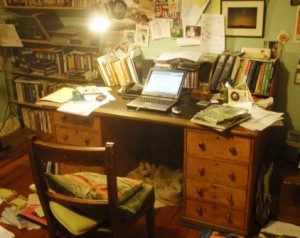
Here’s a 2014 interview with George, published in the Eastern Daily Press on the occasion of his return to Norwich after decades away. Here’s another, from 2011, by Ana Carolina Prado, in the Brazilian magazine Revista Superinterresante. Here’s a 2009 interview in Ziniasklaida ir Politika, from Lithuania, by Dzina Donauskaite, about grassroots politics and culture. This came from a meeting of some Lithuanian New Leftists George spoke with in Vilnius that January. And here, again for you Euro-linguists, is a 2002 interview with George by Josien Pieterse in the Dutch radical magazine Kunstenaarswijzer, no. 35.
George is married, with two grown-up daughters. He lives halfway between Norwich city centre and the university, in a house with a small town garden, with of all things a cedar atlas (topped), a pond, a few ragged-edged borders, a small pergola, some shrubs he keeps in shape, a couple of fruit trees.

10 replies on “About George”
HI George,
Great to meet this morning – i’ll share your website with our team and perhaps we can do a gig/workshop….. something with or for local youngsters and artists – all for discussion —
[…] film about David, Wandering Abroad and her current gardens of resistance project; Kasia Boddy and George McKay on ‘radical gardening’ (all relating to the David Oluwale Memorial Garden, starting […]
[…] – George McKay […]
Quote -“King Edward VII Grammar School, King’s Lynn, 1973; bottom left. ‘McKay, you’ve got an attitude problem, laddie’. Every boy I knew had an one; it was the school’s special gift on arrival.”. I still have mine – I remember being disgusted at having to have line up for the photo by DES.
Colin Jenner, front row, centre.
Hello George-
I just finished reading your wonderful book Radical Gardening: Politics, Idealism and Rebellion in the Garden. I read this book as a wonderful procrastination tool while producing my own documentary. In fact, I think this book itself is worthy of a documentary project and I do hope some smart documentary maker will contact you about such a project.
Biking and Gardening always seemed ripe for exploration, for me- being someone who grew up in Brooklyn, and always delighted in her own flowerpots on a fire escape and loved working on community plots while biking to and fro, I always wondered why more people did not embrace such friend making, exhilarating experiences. Your book help me see myself a bit, and helped me understand that I am part of a larger group of people who do not reject the world or material goods by biking or gardening, but rather in our own way choose to intensify the experience of being part of this world.
I borrowed this book from my local library and I am now sure that I want to order a copy through Powell’s and have my friends pass it around.
Thanks so much, Edie
This is, indeed, a delightfully navigable website.
Marvellous website. Easy to navigate. GREAT pictures.
Why thanks Ailsa. That was a passport photograph I think, taken against a white door at Old Tiles, Front St, Burnham Market, Norfolk. There were no photobooths around then near us. I wonder what I was thinking about.
I really like all the pictures – yes, I can see them! I especially like the one of you in 1971… That’s pretty cool…
Great website, I suppose I ought to do one for myself!